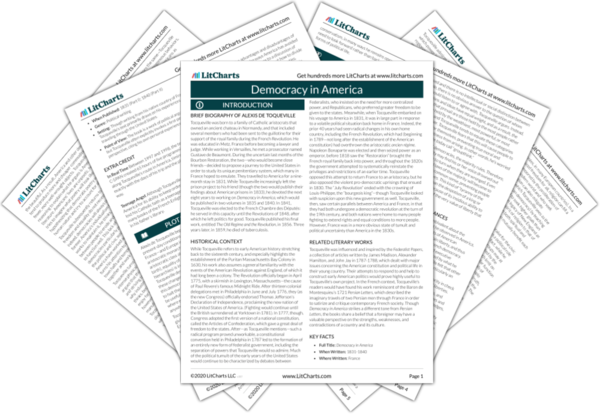LitCharts assigns a color and icon to each theme in Democracy in America, which you can use to track the themes throughout the work.
Liberty, Equality, and Tyranny
Civic and Religious Institutions
Individualism and Materialism
Politics, Customs, and Culture
